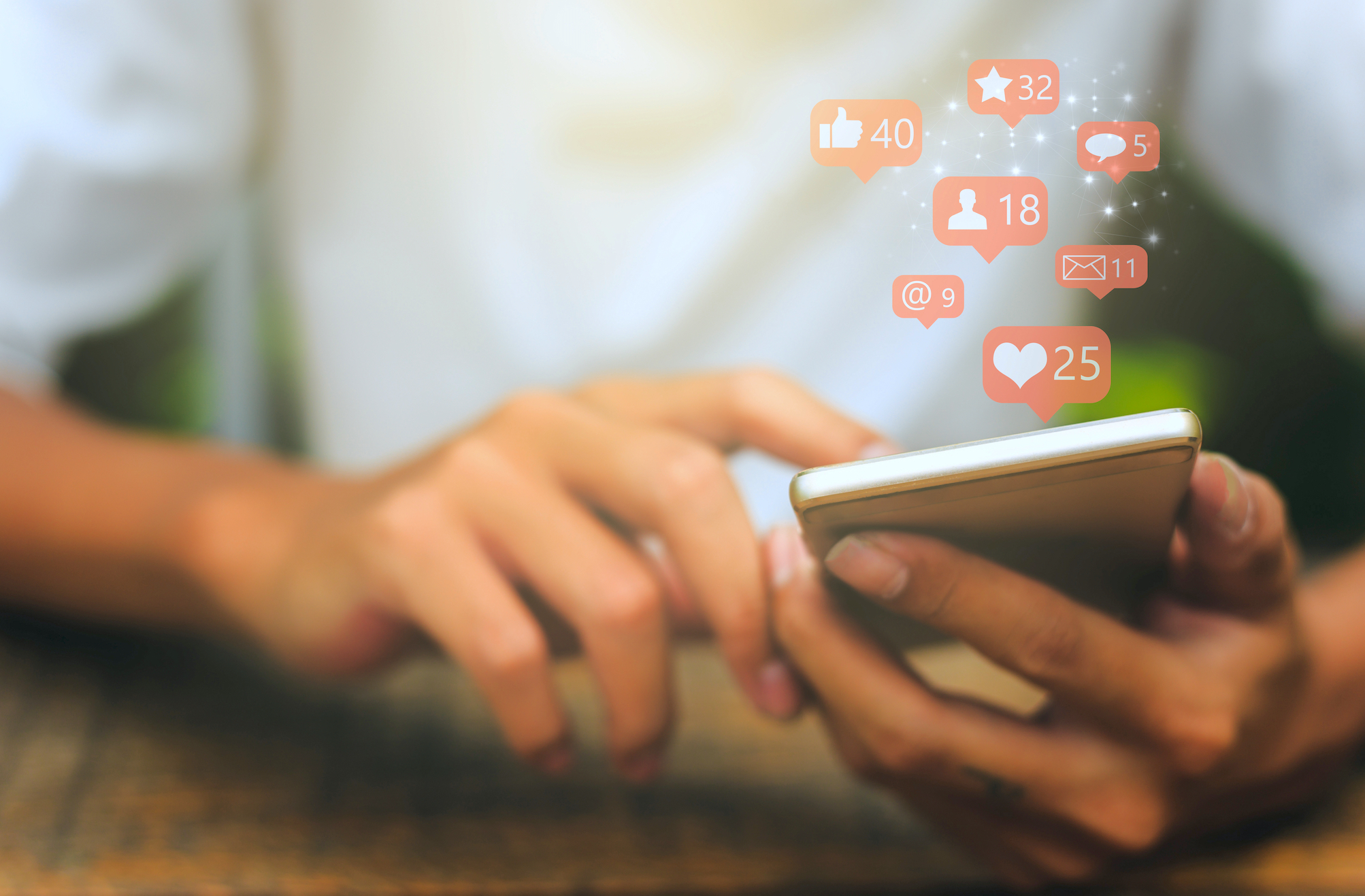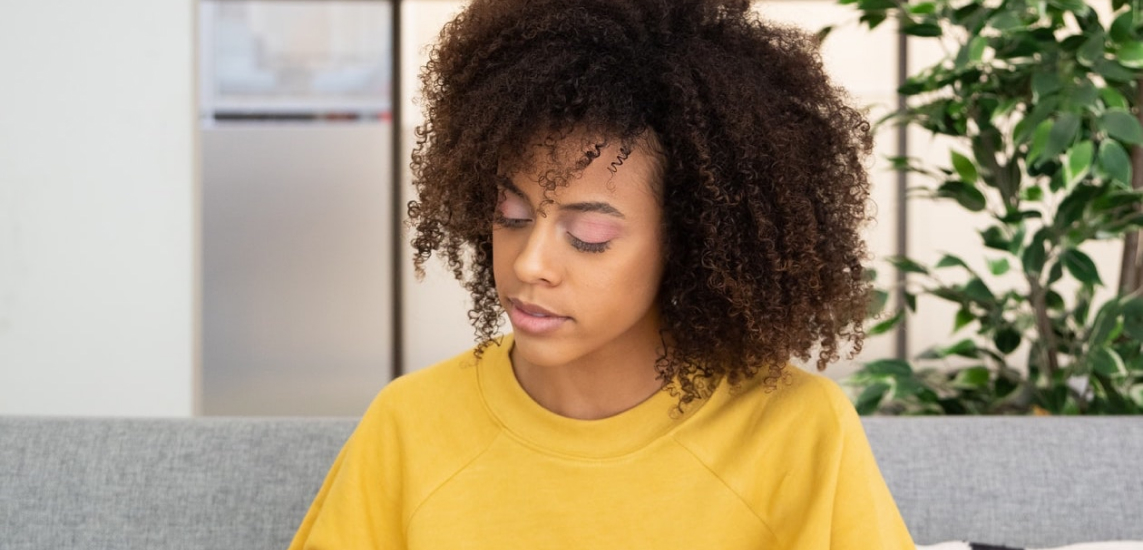Mental health rates are on the rise for young people. Is social media to blame? This essay explores its light and dark sides, the so-called “Quarter-life-crisis”, the impact of social media on youth mental health, reasons why young women are more affected by anxiety and depression as well as strategies to reduce the dysfunctions of social media.
The Impact Of Social Media On The Youth
Mental Health Problems are on the Rise
Robust findings from several large longitudinal studies in the UK (The Adult Psychiatric Morbidity survey) and in Australia (Household, Income and Labour Dynamics in Australia (HILDA) Survey, Mission Australia Youth Survey, Australian Institute of Health and Welfare) are showing that mental health problems like anxiety disorders and depression are on the rise among young people. This increase is even more marked among young women; women (aged 16-24) are two to three times as likely to suffer from psychological distress and disorders as men of the same age.
Why are young people more vulnerable to anxiety and depression?
We do know that young people—both men and women—are most vulnerable to mental health problems in childhood, adolescence and young adulthood. About 50% of mental health problems begin by age 14, and 75% by age 24. Why is this?
People are often biologically predisposed to mental health difficulties including anxiety, depression, and substance use disorders, and these issues are often activated by specific internal or external factors that often occur at an early age. Combine the significant developmental and hormonal changes that occur in adolescence with the increased exposure to alcohol, drugs, and high-risk situations that is common during this period and it is easy to see why youth is the most vulnerable time for mental health problems to develop.
Read more: Learn about phone-iduced anxiety and how to set digital boundaries.
Is social media to blame?
The rise of social media has also been considered an important factor in the recent rise in mental health problems among young people. Although society as a whole has embraced the use of social media as a routine fact of modern life, we are only now learning about the impact it can have on a young person who has been exposed to social media from a very early age.
Read more: Psychotherapist Andrea Wachter shares important tips that helped her to overcome depression herself.
Although there are no current definitive answers yet, it makes sense that the input from social media during a person’s developmental period will have a role in shaping his or her identity. Even adults are heavily influenced by the information and images they are exposed to through social media platforms (e.g. political elections); therefore, it is highly likely that young people would be more vulnerable to messages and images that have the potential to negatively influence the way they feel about themselves and how they fit in to the world around them.
Social media may also be responsible for what is being called the “Quarter-life crisis”—a state of anxiety and discontent and a sense of failure borne from the perception that you have not made enough of an impact on the world by age 25.
But why are young women’s rates of anxiety and depression and other mental health problems rising at a higher rate than their male counterparts?
Read more: By telling the powerful journey of one of her clients, psychotherapist and meditation teacher Dorothy Ratusny emphasises the damaging effects of lacking self-love in children all through adulthood.
The impact of social media on young women
Women may be more vulnerable to the negative impact that social media can have on young minds. Here are some possible reasons why:
- Young women may buy into the idealised lives and notions of beauty that are portrayed on social media platforms more than young men. Social media ‘influencers’ may be perpetuating the stereotypical societal standards and pressures women face. Constant comparisons to others who are deemed desirable and seem to have it all can lead to problems with self-esteem and can lead to their own participation in “inauthentic” self-promotion to present a false view of their own life for the sole purpose of being “liked” and accepted by others (both friends and strangers).
Read more: Psychotherapist, author and Insight Timer publisher Andrea Wachter proposes and reflects on six ways to overcome the negative body image that has infiltrated our society.
- Young women are subjected to more damaging personal comments via social media in comparison to men. The comments are often more violent, threatening, sexual, and derogatory.
Read more: Learn about compassionate and mindful communication on social media to avoid falling into the trap of online bickering and name-calling.
It is not all bad: Positive Effects of social media on youth
Social media is here to stay and it can be a useful and effective tool. Social media can serve the following positive functions:
- Connection: Social media can be a great way to stay in touch with friends and family especially if you can’t connect in person. It can also help you to meet new people and find people with similar interests. Social media can also be a way of connecting with people you admire or inspire you and can be a way for you to inspire and motivate others.
- ‘Authentic’ Self-promotion/Marketing: Social media is a legitimate way to promote your brand or business and to increase awareness in your interests, hobbies, charities or business ventures. If used effectively, it can be a way of disseminating quality information and be an avenue to improve your financial position and help with future employment opportunities.
- Positive feedback: Social media can have a positive effect on your psyche because, let’s face it, praise feels good. Posting only to receive positive feedback is not the idea, but if you post about something you feel good about or something you’ve discovered or accomplished, receiving encouragement and praise can have a positive influence on your mindset, it can enhance your self-concept and it can increase your motivation to continue to pursue your goals.
- Health & Well-being: Many people have found social media helpful in enhancing both their physical and psychological well-being. Examples include apps, websites, and online forums that promote self-care, resilience, and a healthy lifestyle and that provide accurate information and strategies to help people create and maintain emotional well-being.
The free meditation app Insight Timer offers the world’s largest library with guided meditations, talks and meditation music. Start browsing now. Practice self-care now with these free guided meditations by Dr. Lillian Nejad:
- Mindfulness Of Thoughts As Clouds In The Sky Dr. Lillian Nejad 14:10
- Clouds Visualization Dr. Lillian Nejad 10:03
- Progressive Muscle Relaxation for Sleep Dr. Lillian Nejad 15:01
Social Media’s Dark Side: Negative Effects Of Social Media On Youth
Social media has a dark side. Here are some of the ways it can more damage than good.
- “Inauthentic” Self-promotion: Inauthentic self-promotion is when you present a false view of your life for no other purpose other than to get followers or to be a follower. It has no real meaning or purpose and your self-concept is highly influenced by others’ perception of you rather than based on a strong sense of identity and values. Instagram has recently commenced a trial in Australia, Brazil, Canada and four other countries, removing the ability for others to see how many likes a post has received — perhaps as a way to improve the meaningfulness and the authenticity of individuals’ responses to posts. The responses to this experiment have been mixed and time will tell if this is a strategy has had a positive psychosocial impact.
- Vulnerable to cyber-bullying & trolling: Participating in social media opens you up to threats and potentially psychologically and physically dangerous situations from both people you know and from strangers. Everyone who has set up a public profile runs the risk of being trolled or stalked. Alternatively, people, and perhaps, mostly young people, have the potential to say or do something online that is considered inappropriate or irresponsible—and this can have major repercussions to their future job prospects, their relationships and even their standing in the community.
- Isolation: Social connection is one of the most important factors in maintaining mental health and well-being and although social media can assist with increasing connections with others, it may also account for the increase in loneliness in our society. People are choosing to interact more and more via social media platforms and experiencing less and less person-to-person interaction. This lack of practice interacting in real life can lead to problems like social anxiety, avoidance behaviours, self-esteem issues and depression.
- Distraction: Social media can be a major distraction from important aspects of life like spending quality time with loved ones or achieving life goals. Overuse can lead to poor sleeping habits, procrastination and even dependence. Social media can make people less aware during tasks that require focus and attention. Distraction while driving is one of the most concerning behaviours that have arisen from the rise of social media and smartphones.
Read more: Learn about smartphone addiction, how to overcome it with mindfulness and what role new technological designs play in digital stress.
What can be done to reduce the dysfunctional impact of social media on young people?
- Deliver Relevant Social Media Training: Schools are already providing some social media training to students; however, they tend to be abstinence-based models (don’t use social media) and more focussed on how to avoid and handle cyber-bullies or potential predators. These training sessions are helpful of course, but they are limited in scope due to the lack of specificity and knowledge of the current platforms that young people are using and how they are using them. Schools need to provide relevant platform-specific information and offer a harm minimisation approach, not just an abstinence approach to children and their caregivers.
- Provide Clear Guidelines: Young people, their families and their schools need to deliver consistent messages regarding the practical guidelines for use of social media. Children need clear limits on the frequency and duration of use. It is important for a young person to understand the purpose of using a specific platform, the benefits as well at the potential pitfalls. Appropriate private settings and monitoring of accounts are helpful safeguards to implement to protect young people. Young people also need to know who they can talk to if they are uncertain, confused or scared about what they are exposed to online or they themselves have made an error of judgement.
- Develop Resilient Mindset: Young people need to develop resilience in relation to social media by:
- Learning coping skills and ways to dismiss negative comments, messages and images online
- Clarifying their own purpose for being online and using social media in a value-driven manner
- Having an accessible and reliable support system who can help them navigate social media effectively and responsibly.
Read more: Pete Dunlap explores three strategies to become more aware of your own browsing behavior and to pull yourself out of the social entertainment tunnel.
- Acknowledge the benefits and the drawbacks to social media: It is important to regularly reflect on the pros and cons of social media use on an individual level. Teach young people to reflect on their own behaviour and whether social media is serving a useful function or not.
- Promote a Healthy & Balanced Lifestyle: Even is social media is providing a useful function, it has been said that there can be too much of a good thing. Make sure that young people understand what a balanced and healthy life looks like: a life that includes sleeping well, face-to-face social connection, nutrition and exercise and taking time out just to do nothing or to enjoy a moment.
- Seek professional help EARLY: Often the first signs that a person is struggling with their mental health are
- Social withdrawal
- Changes in behaviour: more/less sleep; more/less appetite; more substance use, more/less energy, less motivation
If you see these signs in someone, find time to talk to him or her about your concerns. Be open, direct and nonjudgmental in your approach and offer to help them find appropriate support from a mental health practitioner who provides evidence-based treatment. (Find professional services here: Mental Health America, Australian mental health services and support, mental health support services in the UK, Canadian mental health support and services.)







